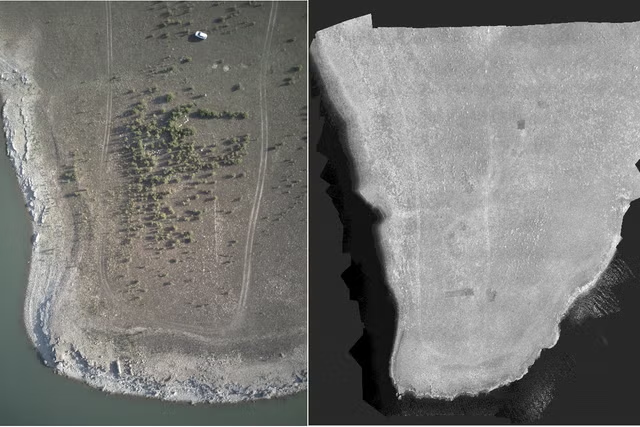A cargo ship has been quarantined in Argentina over a suspected case of Mpox onboard, local authorities report. The news comes days after the World Health Organization declared the virus to be a public health emergency as a new, potentially deadlier strain gathers momentum in Africa.
The Liberia-flagged ship, sailing from the city of Santos in Brazil, informed Border Health authorities on Wednesday that one of its crew members had developed skin lesions on their torso and face compatible with the symptoms of Mpox.
Mpox, formerly known as monkeypox, drew global attention in 2022 during an outbreak that affected the U.S., Europe, Australia and many other countries. The virus comes in two distinct forms, or "clades"—clade I and clade II—and spreads through close contact.
The previous outbreak in the U.S. and Europe was driven by the clade II form of the virus and was mostly spread through sexual and intimate contact, with men who have sex with other men being at the highest risk of infection. However, the current surge in Africa is being driven by a new variant of the clade I virus, called clade Ib, that is thought to cause more severe disease than previous variants.
Last week, the first case of clade Ib Mpox was detected outside of Africa, in Sweden. The Argentine Ministry of Health said that there have not been any cases of the new variant domestically, but that epidemiological surveillance was ongoing to monitor the situation.
Officials said that the ship will remain in the Parana River harbor near the port of Rosario while medical professionals carry out inspections. "The entire crew will be quarantined until the results of the studies are available," the ministry of health said in a statement.
Since the beginning of 2023, more than 22,000 cases of Mpox are believed to have occurred in the Democratic Republic of Congo (DRC), with more than 1,200 deaths. This has likely been driven by the clade Ib variant, which has also spread to neighboring Burundi, Kenya and Rwanda.
However, the U.S. Centers for Disease Control and Prevention (CDC) have said that the risk of clade I Mpox to the U.S. public is very low and is unlikely to cause the same mortality rates as in the DRC should it reach America.
The CDC added that those in the U.S. who have had Mpox or are fully vaccinated should be protected against both clade I and clade II Mpox. You can also protect yourself by taking the following precautions:
- Avoid close contact with people who are sick with Mpox symptoms, like skin lesions, especially around the genitals.
- Avoid contact with wild animals in areas where Mpox regularly occurs (for example, while traveling.)
- Avoid contact with contaminated people and materials, such as bedding and clothing, used by people who are sick.
Is there a health problem that's worrying you? Let us know via health@newsweek.com. We can ask experts for advice, and your story could be featured in Newsweek.
Disclaimer: The copyright of this article belongs to the original author. Reposting this article is solely for the purpose of information dissemination and does not constitute any investment advice. If there is any infringement, please contact us immediately. We will make corrections or deletions as necessary. Thank you.



